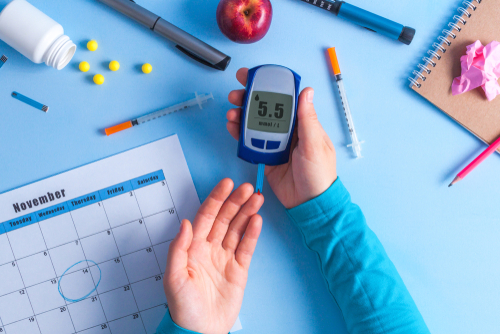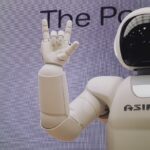At the EASD 2022 conference, an interesting panel on new technologies gives insight into the current state of AIDS and telemedicine, as well as what top diabetes experts anticipate for the future of diabetes care.
The healthcare industry is continuously expanding, and robotics and artificial intelligence are now more important than ever in the management of diabetes. In a session entitled “A New Hope or Strange New Worlds: Immersing Diabetes in Emerging Technologies” during the EASD 2022 conference in Stockholm, Sweden, researchers addressed this notion in further depth.
Clinical Decision Support
Dr. Moshe Phillip began by illustrating how continuous glucose monitors (also known as CGMs) constitute a new standard leap in diabetes technology.
Philip stated that automated insulin administration technology has significantly increased time in range (TIR) and decreased A1C levels.
Phillip described how these technologies combine with artificial intelligence to provide a Clinical Decision Support System (CDSS). He noted that diabetes treatment standards are “very difficult to follow” due to their complexity.
The CDSS includes data from technology like as continuous glucose monitors, insulin pumps, smart linked pens, and even self-monitoring blood glucose meters. This data is evaluated by artificial intelligence algorithms that identify glucose trends and insulin dosage events, resulting in a comprehensive representation of a person’s health data.
Similar to knocking on a colleague’s door and requesting a second opinion, the CDSS is designed to be utilized as a supplementary resource.
With a more convenient visual depiction of health data, clinicians may spend more time initiating a dialogue with their patients and less time trawling through pages of data.
The Positives And Negatives Of Telemedicine
Telemedicine has been on the increase for several years, but the COVID epidemic accelerated its acceptance significantly. Dr. Richard Holt, stated, “Overnight, we were obliged to adopt telemedicine since face-to-face consultations were no longer secure due to the epidemic.”
People with diabetes valued the enhanced convenience and flexibility of telemedicine, while healthcare practitioners reaped the benefits of fewer missed visits.
However, Holt noted that the transition to telemedicine presented several obstacles. He highlighted research that showed over 60,000 instances of diabetes in the United Kingdom may have gone untreated because of the COVID epidemic. During the epidemic, there were also considerably fewer A1C testing and foot inspections.
Some patients preferred in-person appointments because it was simpler for them to interact with their healthcare team. Several individuals found telemedicine to be more stressful, indicating that we cannot assume that the technology would be handy and comfortable for everyone. Holt stated that telemedicine is less appropriate for patients who are extremely young or very elderly, have complicated health demands, or require a physical examination. Telemedicine may be utilized to provide efficient diabetic treatment, but it cannot replace all in-person consultations, according to Holt.
Dr. Steven Russell discussed the current status of automated insulin delivery and hinted at the possibility of future smart insulin solutions. Russell stated at the outset of his presentation that there is a serious shortage of endocrinologists in the United States and that most primary care doctors feel uneasy handling patients with type 1 diabetes who use an insulin pump.
Insulin dosage is largely automated via hybrid closed-loop devices, needing only human mealtime boluses and occasional corrective boluses. He elaborated on how the Beta Bionics iLet Bionic Pancreas increased time in range and decreased A1C levels. In addition, he referenced research that demonstrated how an AID system with automated microdosing of glucagon can avoid or decrease severe hypoglycemia. Russell advocated for broader investigations of this bi-hormonal (insulin and glucagon) systems.
Not only does diabetes related technology help those with diabetes, it may help them save money on insurance products. Matt Schmidt with Diabetes Life Solutions mentions “certain insurance companies are offering discounts to people who utilize diabetes technology. Life insurance for diabetics is usually more expensive, so any discounts are quite welcomed. As an example, life insurance for type 1 diabetics may be lowered by 6% or more if you’re using an insulin pump.”
He continued his presentation by mentioning intelligent insulins, or insulins that are triggered when blood glucose levels exceed 50 and deactivated when glucose levels fall below 50. This intelligent insulin would be “already where it is required and just requires activation or deactivation.”












